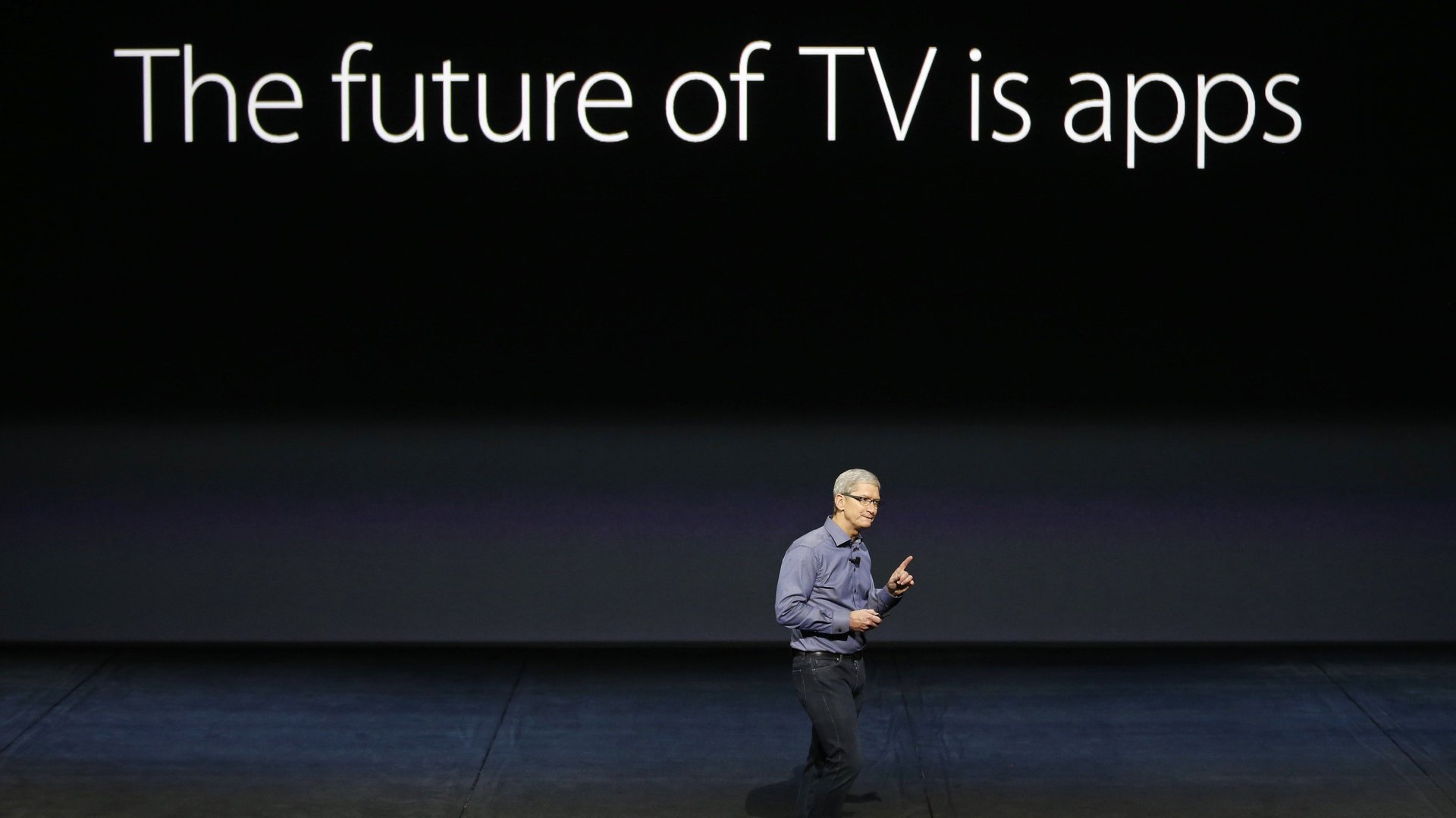The way Apple is talking about its video service suggests it’s finally on the way
Apple still isn’t ready to talk about its plans to take on Amazon, Netflix, and others in streaming video. But it’s starting to get slightly less coy about it.


Apple still isn’t ready to talk about its plans to take on Amazon, Netflix, and others in streaming video. But it’s starting to get slightly less coy about it.
“We will participate in the original content world,” Tim Cook, Apple’s CEO, told analysts on a call Tuesday (Jan. 29). “We have signed a multiyear partnership with Oprah. But today, I’m not really ready to extend that conversation beyond that point.”
Cook’s statement was nearly identical to the comments he gave analysts in July, when he said he was excited to be working with Oprah Winfrey—as well as Jamie Erlicht and Zach Van Amburg who left Sony Pictures TV to lead worldwide video at Apple—but that he was not “really ready to share all the details about it yet.”
There was one key difference this time around: “We’ll have something to say more on that later,” Cook added. “Later” is the most concrete timing Cook has offered about the service.
Apple is that kid at the pool who wades gradually into the water, shivering inch-by-inch, rather than jump in and adapt, like tech rival Amazon did. In 2017, Apple dipped its “toe in the water,” as Cook said in January of that year, with original video for its music-subscription service, Apple Music, such as the lackluster Planet of the Apps and Carpool Karaoke series. It also hired Erlicht and Van Amburg to engineer a bigger push into video, one that Apple budgeted at least $1 billion for content for, from the likes of Winfrey, Steven Spielberg, and studios like A24, which produced the Oscar-winning Moonlight. It was striving for the high-quality rather than the quantity that Netflix is known for producing.
But the tech giant had to push back the premiere of its first slate of shows, from late last year to March, though that could be delayed again, the Wall Street Journal reported (paywall) in September. The story suggested it was partly because Apple was being very particular about the type of content it would allow on the service, shying away from sex, violence, and explicit content, to protect its carefully crafted brand. The new March timeline would align with Apple’s next product event—it usually holds events in March and September.
Last May, Bloomberg reported (paywall) that Apple was also planning to integrate video subscriptions directly into its TV app, which aggregates content from other platforms, like a searchable streaming-TV guide. Currently, people sign up for video subscriptions through Apple’s App Store, but can see what’s available on those services through the TV app. In July, Cook noted that third-party video subscriptions were growing at Apple thanks to adoption of the Apple TV.
Both Amazon and Roku, which make rival streaming media players, already aggregate and sell other subscriptions through their platforms, and Facebook is considering doing so as well. Apple’s version is expected to be ready by mid-April, and launch several weeks after that, The Information reported (paywall).
Earlier this month, Apple opened the door for its content to reach more than just Apple device owners, as well. It made iTunes movies and TV shows available on smart TVs from Samsung, and integrated other features into LG and Vizio TVs. If it brings its TV app to other devices, Apple’s content could have a much greater reach. That’s important for talent like Spielberg and Winfrey who expect their content to be seen by millions around the world, as well as for Apple, which is trying to grow its services business. Apple is thought to be planning to give away its original TV shows and movies for free, exclusively through the TV app, as a loss-leader to get people to subscribe to other video subscriptions within the TV app, or use Apple services and devices.
The company is smart to be cautious, though: Apple is a hardware maker, not a media company. And no one has launched a global TV service overnight, as it is attempting to do. But with a bevy of other platforms on the way, like Disney+, WarnerMedia’s tiered service, and NBCU’s offering, what Apple is building better be worth the wait.
Want a better understanding of where Apple fits into the streaming industry? Check out our guide to the streaming-TV wars (paywall).